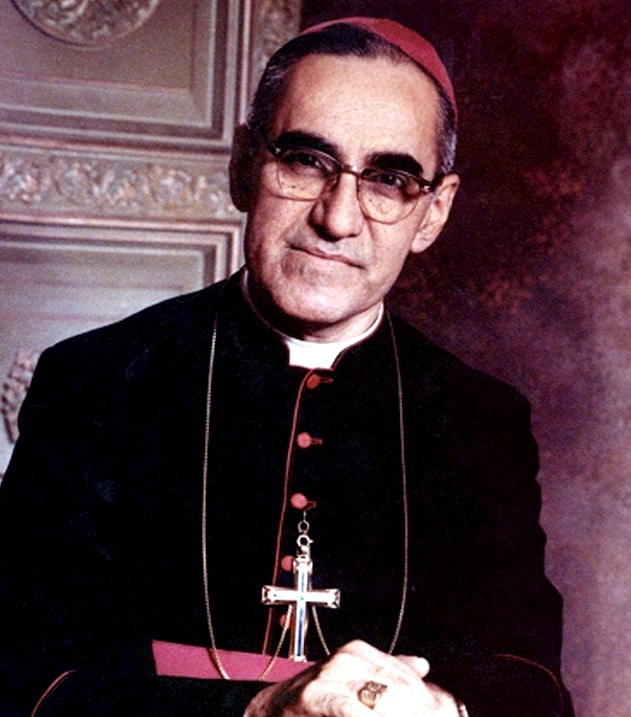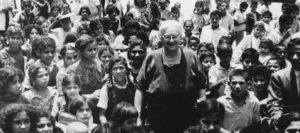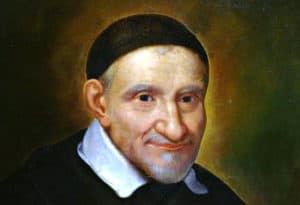(1917-1980)
 On March 24, 1980, the archbishop of San Salvador used the parable of the wheat in his sermon: “Those who surrender to the service of the poor through love of Christ will live like the grain of wheat that dies…If it were not to die, it would remain a solitary grain. The harvest comes because of the grain that dies…we know that every effort to improve society, above all when society is so full of injustice and sin, is an effort that God blesses, that God wants, that God demands of us.”
On March 24, 1980, the archbishop of San Salvador used the parable of the wheat in his sermon: “Those who surrender to the service of the poor through love of Christ will live like the grain of wheat that dies…If it were not to die, it would remain a solitary grain. The harvest comes because of the grain that dies…we know that every effort to improve society, above all when society is so full of injustice and sin, is an effort that God blesses, that God wants, that God demands of us.”
A few minutes later, as he was about to elevate the elements of communion, he was shot though the heart and killed.
At the time of his death, Archbishop Oscar Romero was considered a highly dangerous man by the government of El Salvador. Appointed to his post in 1977 because he was thought to be a supporter of the status quo, Romero had become increasingly outspoken during his three years in office, particularly against the “injustice and sin” perpetrated by the military junta that was in power. His audience was the world, and he informed the international community repeatedly about the tortures, executions, and “disappearances” of his countrymen.
Romero was an unlikely candidate for political activist. Born in 1917 in the mountain town of Ciudad Barrios near El Salvador’s border with Honduras, Romero decided early in life that he wanted to enter the priesthood. He attended seminary in San Miguel and San Salvador and completed his studies in Rome, where he was ordained in 1942. His rise in Central America’s Catholic hierarchy was steady—from country priest to head of a seminary to a series of high positions within the episcopacy and finally to the position of archbishop of San Salvador in 1977. He was a compromise candidate elected by conservative bishops, a pious and scholarly man who had criticized clergy who involved themselves in politics.
The transforming event in the life of the former moderate took place three weeks after he assumed the archbishopric, when his close friend, Father Rutillo Grande, was ambushed and killed by a paramilitary death squad. Father Grande had fought for the peasants’ rights to form farm cooperatives, saying that the landowners’ dogs ate better than the people who worked the fields. Killed along with Grande were a small boy and an old man.
Romero was profoundly affected by the murders and set out to redefine the role of the church in his country. He now saw the church as the defender of the poor and used the pulpit to denounce injustice. At this time El Salvador was a country of extreme wealth and extreme poverty, with 14 families owning 40 percent of the land and the rest of the population struggling for the bare necessities of life.
His fellow bishops accused him of being “politicized” and seeking popularity. The poor were amazed that someone in so high a position would be on their side and called Romero their “good shepherd.”
The change in Romero staggered both the powerful and the poor. The elite of both church and government felt betrayed, particularly when Romero swore to attend no more government functions until the repression of the people came to an end. When he begged for international intervention in the internal struggle that was claiming 3,000 Salvadoran lives a month, his fellow bishops sent a secret document to Rome accusing him of being “politicized” and seeking popularity. The poor themselves were amazed that someone in so high a position would be on their side and called Romero their “good shepherd.”
In his weekly radio homilies broadcast throughout the country, Romero related statistics on political assassinations and excesses committed by the military. His fate was sealed when his radio broadcast urged soldiers to defy military commands to kill their own people: “Each of you is one of us. The peasants you kill are your own brothers and sisters,” he said, his voice breaking. “No soldier is obliged to obey an order contrary to the will of God.” One day later he was murdered during mass by an agent of the right wing.
Like the wheat that dies and still yields a harvest, Romero’s martyrdom has given impetus to an ongoing international movement for social justice in El Salvador. The Committee of Relatives of Victims of Human Rights Violations in El Salvador (CODEFAM) was founded in 1981 to defend human rights, to provide legal and social assistance to victims and their families, and to work for the release of political prisoners and for the “disappeared.” Since the signing of the 1992 peace accords, which put an end to civil war, CODEFAM has continued to work for the promotion and defense of civil, economic, social, and political rights.
 The story of the life and death of Archbishop Oscar Romero has been told in the film Romero (1989), produced by Paulist Pictures and starring Raul Julia. The Violence of Love (Plough Publishing House, 1998) is a compilation of Romero’s most powerful homilies.
The story of the life and death of Archbishop Oscar Romero has been told in the film Romero (1989), produced by Paulist Pictures and starring Raul Julia. The Violence of Love (Plough Publishing House, 1998) is a compilation of Romero’s most powerful homilies.


